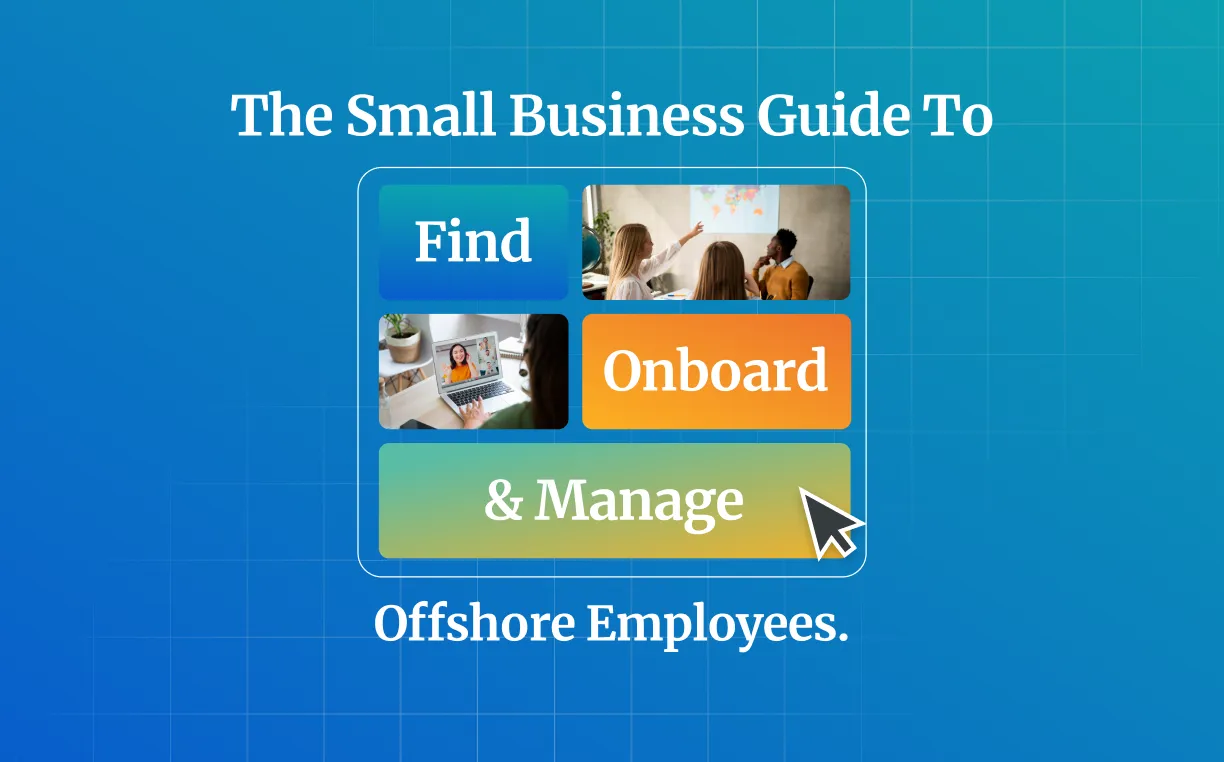The Hidden Costs Not Going Global: What Startup Leaders Don’t See Coming
Key Takeaways:
- Missed revenue opportunities arise when startups ignore emerging international markets with high growth potential.
- Increased competition from global players can outpace local-only startups and capture market share.
- Limited talent pool restricts access to specialized skills and innovative ideas found in international markets.
- Higher operational costs result from relying solely on expensive local markets instead of leveraging global cost advantages.
- Missed innovation opportunities occur when companies do not benefit from diverse perspectives and international insights.
- Reduced brand credibility and economic resilience limit growth, customer trust, and protection against localized market risks.
As a startup founder, staying local feels like a safe play. It’s a world you know, it’s manageable, and you don’t have to deal with all the legal and logistical headaches of going international. On the surface, it even looks like the responsible choice.
But the reality is, playing it safe comes with its own hidden price tag, one that can be far steeper than the risks of expanding.
While you’re scanning a limited talent pool, they’re hiring the best people from around the world. And while your costs keep climbing at home, they’re benefiting from lower expenses, new revenue streams, and a much safer, more diversified business.
Choosing not to go global doesn't just pump the brakes on growth; it quietly chips away at your company's true potential.
So let's talk about what that really costs you.
1. Financial Drain: Lost Revenue Opportunities and Higher Operating Costs
If you’re not thinking globally, you’re leaving a lot of money on the table.
Regions like Southeast Asia, Africa, Eastern Europe, and Latin America aren't just "future opportunities" anymore, they're economic powerhouses right now. They have booming middle classes, more people getting online every day, and an interest for new digital products. By sticking to your home turf, you’re cutting yourself off from a massive pool of potential customers.
But lost revenue is only half the story.
Think about it: if you're running your business solely out of an expensive city like London, New York, or San Francisco, you’re paying top dollar for everything; salaries, rent, taxes, you name it. Meanwhile, your competitors could be running leaner by setting up parts of their business in lower-cost regions. They’re stretching their funding further and giving themselves a longer runway.
When you stay local, you’re often stuck with:
- Higher costs to hire talent
- Pricier office space
- A heavier tax load
- Constant pressure to find more funding
When you expand your teams internationally, whether it's for operations, hiring, or support, you can take advantage of lower costs around the world. That's money you can pour right back into what really matters: building a better product, marketing, and innovating.
2. Operational Inefficiencies and Market Limitations
One of the biggest hidden costs of not going global is how inefficient it makes you down the road.
When you're only focused on your home market, you tend to build everything just for that audience. Your systems, products, and processes are perfectly tailored for one place, which feels smart at first. But you're accidentally creating huge blind spots when it comes to things like scalability, compliance, and adapting to different customers. When it's finally time to grow, you're not just expanding, you’re forced to tear everything down and rebuild from scratch.
In contrast, startups that think globally from the get-go build more flexible infrastructure right away. They create systems that can handle multiple currencies, languages, and time zones, and they design their processes to scale from day one.
Beyond the operational headaches, staying local also means you're putting all your eggs in one basket. If your home economy takes a hit, so does your entire business. You’ve given one single market total control over whether your business succeeds or fails.
When you operate in different countries, you spread that risk out. Demand from one region can offset a slowdown in another, leading to more consistent revenue and protecting you from local downturns. Plus, it gives you a front-row seat to new trends as they emerge around the world.
It might feel simpler to just stay local, but in the long run, you're actually building a much more fragile business.
3. Increased Risk from Currency Fluctuations and Payment Barriers
Here’s a hidden risk of not going global that nobody talks about: tying your entire business to a single currency.
When your whole operation runs on one currency, you’re completely exposed to things like inflation, political instability, or sudden changes in interest rates. Even a slight devaluation can throw your entire financial plan into chaos.
Businesses that operate in multiple markets, however, have a built-in safety net. They deal with various currencies and payment systems, which naturally spreads out the risk. If one currency weakens, another might be going strong, helping to balance cash flow and keep financial planning on solid ground.
Beyond that, staying local often means you're limited in how people can pay you. Companies with a global footprint build their systems to work with everything from multiple currencies and local payment platforms to regional banks and international vendors.
Ultimately, this makes them far easier to buy from, simpler to partner with, and much more accessible than businesses stuck in a single financial system.
4. Cultural and Competitive Disadvantages Domestically
Here’s the funny thing: you might think the cost of not going global is just missed opportunities overseas, but the real damage happens right in your own backyard.
When startups operate on a global scale, they don't just get new customers; they get a crash course in new perspectives, different ways to solve problems, and cross-cultural ideas you just can't find at home. They bring all that insight back with them, leading to smarter, more inclusive products that appeal to a much wider audience. Meanwhile, a startup that stays local can easily become an echo chamber, building things only for people who think and act just like their own team.
And while you’re focused on local operations, international competitors are already looking to move in, often with deeper pockets, bigger names, and better infrastructure. You may be trying to stay in your lane, but they're ready to merge right into it.
Without that global exposure, your company risks becoming stale and insular. You’ll have a harder time attracting top talent, and you’ll start to look like an easy target for those competitors. In today's world, thinking globally isn't a luxury,it's a requirement for staying in the game.
5. Strategic Benefits of Early Global Expansion
It might seem counterintuitive, but the startups that feel the least pressure are often the ones that went global earliest.
Going global from the start forces you to be smarter. It pushes you to build stronger systems, run a leaner operation, and make sharper decisions as a leader. You also get a head start on benefits that are almost impossible to replicate later on, like being the first to break into an emerging market and building brand recognition before competitors even show up. It helps you forge stronger global partnerships and opens the door to international investors and a worldwide talent pool.
So instead of overwhelming your company, smart global expansion actually makes it more resilient. You're no longer entirely dependent on a single government, one economy, a local workforce, or a single customer base.
And the result? A more stable company with a higher valuation and a lot more strategic options on the table, whether that’s an acquisition, a new partnership, or a global exit.
Final Thoughts: The Real Price of Staying Local
The price of staying local doesn't show up on an invoice like rent or payroll, but trust me, it’s much higher in the long run.
You end up paying for it in other ways: missed chances to grow, competitors who outpace you, and a shrinking slice of the market. Over time, you innovate less and take on way more risk by standing still.
If you’re building a startup with real ambition, playing it safe in your home market isn't actually a strategy, it's a disadvantage.
Going global doesn't mean you have to open ten offices tomorrow. It’s about building a company with a worldwide mindset from the beginning, one that's ready to jump on opportunities instead of being limited by geography.
In a world this connected, the biggest risk isn't expanding. It's staying exactly where you are.






